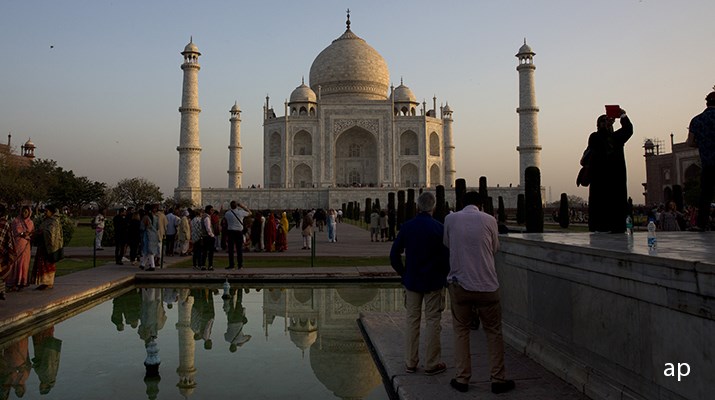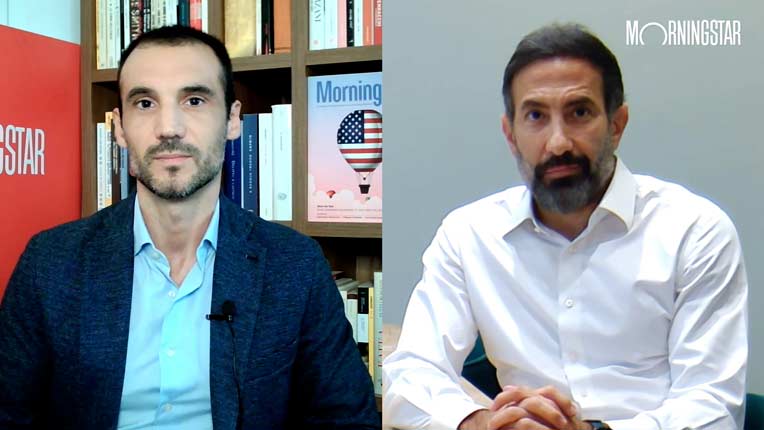
Last year’s Indian elections guaranteed a 10-year reign for Narendra Modi as prime minister, giving him more time to implement his radical and somtimes controversial reforms. But the election euphoria proved short-lived, at least for equity markets, and 2019 was a tough year for active managers on the subcontinent.
Uncertainty around India's general election last May made for a tumultuous year as shares surged, then fell, then rallied again. But Kristy Fong, manager of the Bronze-rated Aberdeen Standard Indian Equity fund is expecting the stock market to be calmer through 2020.
But the volatiity of recent years has not been surprising; Modi's reforms have so far been “painful and disruptive” says Fong, and have yet to fully bear fruit. Vinay Agarwal, manager of the Gold-rated First State Indian Subcontinent fund, points to the new Goods and Services Tax (which has standardised sales tax across the country, which was previously decided state-by-state) as one example: it has been a nightmare to implement, caused financial distress for small business (many of whom are having to pay tax for the first time), but will boost tax revenues in the long-term and eventually lead to better oversight of India's many companies.
Modi is “trying in some cases to undo 50 to 60 years of bad practices for which there are strong vested interests”, argues JP Morgan India trust (JII) manager Rukhshad Shroff.
Scandals in the property and banking sectors haven’t helped investor sentiment either – Loan finance company Infrastructure Leasing & Finance Services (ILFSL) defaulted on its loans in 2018, causing capital markets to freeze up, starving companies of investment cash.
But Agarwal believes the Indian economy is getting close to the bottom of the cycle, while Aberdeen’s Fong thinks that 2019 was the turning point for corporate earnings and the wider economy. Hiren Dasani, manager of the Bronze-rated Goldman Sachs India Equity Portfolio fund, thinks economic indicators are already suggesting the recovery is now underway. External factors like a softening oil price can also help prop up this recovery, he adds. (India's economy is heavily dependent on oil imports).
Bucking the Benchmark
Does it pay to go active in India? One of India’s largest companies, conglomerate Reliance Industries (RIGD), makes up more than 11% of MSCI India index – and the top five companies, Reliance, HDFC (HDFC), ICICI Bank (ICICIBANK) and Infosys (INFY) make up around 35% of the 80+ stock benchmark.
Reliance's shares climbed more than 17% last year and are up more than 200% over the past five years. Helped by Reliance's growth the MSCI India rose around 10% in 2019. That means managers without the same high exposure to the stock can start to lag the index.
But active managers in the sector tend to have more concentrated portfolios than MSCI India. For example, the First State and Aberdeen funds have 42 or so stocks, Bronze-Rated Jupiter India has 68 and Bronze-Rated Stewart Investors Indian Subcontinent Sustainability Fund 38. “We’re not afraid to be different to the benchmark,” says Fong.
If 2019 was not a vintage year for professional investors, over a longer timescale their performance is certainly more impressive: First State is up 14.3% on an annualised basis over 10 years; while in the closed-end space, Aberdeen New India has delivered annualised returns of 10% over 10 years and JP Morgan India 7%.
Cement and Air-conditioners
“The great thing about India is there is a huge variety of companies,” says Fong. Because of the dominance of big names like Reliance and HDFC, smaller and mid-cap names are often not on the average investor’s radar.
Cement companies may lack glamour, but they tap into the expected boom in Indian construction over the coming decades. Affordable housing is a key tenet of the Modi government’s pitch for “inclusive growth”; in 2015, he promised that by 2022 every Indian would have access to a brick and cement house. While this is some way off target in many states, it's a target that suggests Modi's ambition.
First State’s Agarwal holds two cement companies, Ambuja (AMBUJACEM) and Heidelberg (HEIDELBERG), to take advantage of the long-term trend for construction growth. Aberdeen’s Fong also has exposure to the property and construction sectors: she favours names like South India’s property firm Prestige Group and cement firms UltraTech and Goodrich. She says the construction sector, despite recent problems, is a rare example of where Government incentives and the private sector are aligned.
Among consumer sectors, Agarwal has high hopes for Bharti Airtel (BHARTIARTL) because he thinks consolidation in the telecoms sector will allow providers to hike their charges. Data charges in India are currently lower than in sub-Saharan Africa, despite the country having the highest data usage per smartphone in the world. Goldman's Dasani likes the telecoms sector and thinks the market can easily absorb price rises.
And perhaps surprisingly given the climate, Agarwal says that air-conditioning is still yet to go mainstream in India; his pick of the sector is Blue Star (BLUESTARCO).
Aberdeen’s Fong also rates internationally focused firms like Tata and Infosys because of their low debt and strong cash flow; unusually for large Indian companies, they pay a decent dividend too.
The Long-Term View
More than 70 years after becoming a democracy, India’s promise as a booming consumer democracy remains intact despite a recent tricky few years for investors. While the 30-stock BSE Sensex index hit a record high last year, fund managers are not getting carried away.
“We prefer if the market is not euphoric,” says Fong, arguing that booming stock markets make it harder for stock pickers.
From an ESG perspective, active managers may have an advantage over index trackers. Governance, the third pillar of ESG investing, is a perennial hot topic in India, particularly as many companies are owned by powerful founding families. Intricate ownership structures, with conglomerates controlling large and sprawling empires, make oversight difficult for overseas investors. And index investing makes it hard to avoid a scandal-hit company. “What matters for us is quality of management and quality of governance,” First State’s Agarwal argues.
Many fund managers are positive about Modi's reforms in the longer-term, but argue that investors will have to patient to see them through.





























